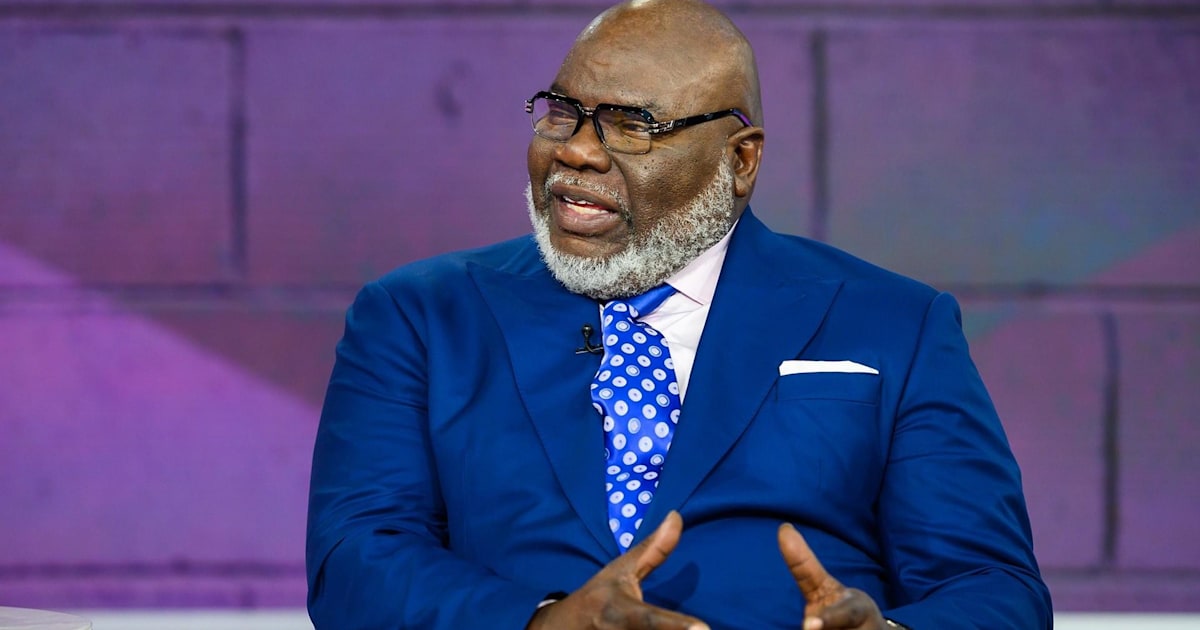In a recent discourse that has sent ripples across the Christian community, Jano Jennings issued a fervent call to Td Jakes, denouncing what he perceives as a departure from biblical truths in Jakes’ teachings. With unwavering conviction, Jennings highlighted various points of contention, ranging from the role of women in the church to the significance of baptism and adherence to biblical modesty standards.

One of the central issues raised by Jennings is Jakes’ purported endorsement of women preaching, which he argues contradicts clear biblical directives outlined in scriptures such as 1 Timothy 2:12 and 1 Corinthians 14:34-35. By deviating from these precepts, Jennings contends that Jakes undermines the authority of scripture and fosters a culture of non-compliance within the church.
Moreover, Jennings takes issue with Jakes’ stance on baptism, asserting that Jakes’ rejection of water baptism in the name of Jesus Christ diverges from biblical mandates. According to Jennings, baptism symbolizes a believer’s identification with Christ’s death, burial, and resurrection, and any departure from the scriptural requirements undermines the essence of this sacrament.
Another point of contention highlighted by Jennings is Jakes’ lenient stance on adornments such as makeup and jewelry, which he argues contradicts biblical principles of modesty and inner beauty. Citing scriptures emphasizing the importance of modest attire, Jennings contends that Jakes’ endorsement of such adornments fosters a culture of vanity and materialism within the church, diverging from the scriptural call to holiness.
Beyond specific doctrinal differences, Jennings raises broader concerns about the spiritual implications of Jakes’ teachings. He warns that Jakes’ deviation from biblical principles may lead to a distorted understanding of scripture among believers, potentially resulting in spiritual compromise and moral laxity. Jennings underscores the importance of adhering to the complete counsel of God’s word and cautions against selective interpretation or downplaying of scriptural mandates.
Furthermore, Jennings criticizes what he perceives as Jakes’ focus on prosperity preaching and motivational speaking, which he contends prioritizes financial gain over spiritual development. He argues that Jakes’ emphasis on wealth and success detracts from the core message of repentance and holiness, undermining the integrity of the gospel message.

In contrast to Jakes’ approach, Jennings advocates for a steadfast commitment to biblical truth and moral standards, emphasizing the need for uncompromising adherence to scripture. He asserts that true spiritual growth and intimacy with God can only be achieved through obedience to God’s word, rather than through worldly pursuits or compromise.
Ultimately, Jennings’ call to Td Jakes serves as a reminder of the importance of upholding biblical integrity and discerning truth from error in an age of theological confusion. It challenges believers to critically evaluate teachings against the timeless truths of scripture and to prioritize doctrinal purity over popular sentiment or personal gain.
In conclusion, Jano Jennings’ impassioned plea to Td Jakes reflects broader tensions within the Christian community regarding the interpretation and application of scripture. While Jakes’ motivational approach may appeal to some, Jennings’ unwavering commitment to biblical truth resonates with those who prioritize doctrinal integrity. As believers navigate these theological complexities, they are called to remain steadfast in their allegiance to God’s word and to choose leaders who faithfully uphold its teachings.